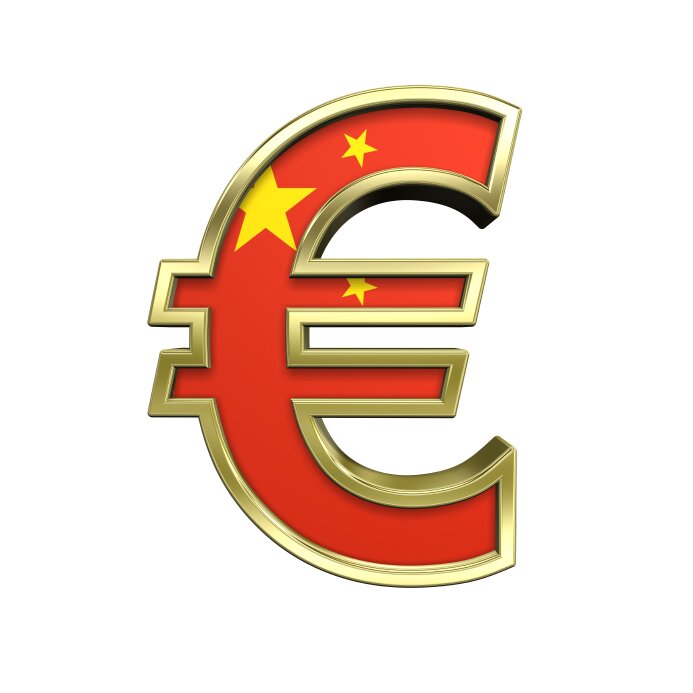
China-U.S. Trade Law
Europe Leaps Ahead Of United States In Bilateral Investment Treaty Negotiations With China 双边投资协定谈判,欧洲领先一步
中文请点击这里
The European Union has moved ahead of the United States in negotiating a bilateral investment treaty with China, as predicted previously here on Baker Hostetler’s China U.S. Trade Law blog. Chinese Commerce Minister Chen Deming and EU Trade Commissioner Karel De Gucht made the announcement on Thursday, July 14, 2011 in Beijing following the 25th meeting of the joint economic and trade commission between China and the European Union.
Both China and the European Union expressed concerns that likely will be key topics of the negotiations. As reported by Xinhua, Europe’s primary concerns are compulsory certification regulations, export credits, and exports of raw materials. For China, primary concerns are high tech trade, registration of herbal medicine, and Europe’s policies applying anti-subsidy, or countervailing duties, to China. These issues are unlikely to stand in the way of a treaty agreement, however, because China has demonstrated a significantly increased commitment to its economic relationship with Europe and is eager to continue attracting foreign investment.
Even before this month’s news about raising the United States’ debt ceiling, China appears to have been shifting its trade and investment focus away from the United States and toward Europe. Economists tracking China’s purchases of U.S. Treasury debt have observed an unexplained gap between the decrease of those purchases and an increase in China’s foreign exchange reserves. The Chinese government remains guarded about its foreign exchange holdings, but some economists believe the gap can be explained by a redirection of foreign investment to Europe.
The announcement of bilateral investment treaty negotiations also comes on the heels of Premier Wen Jiabao’s five-day tour of Hungary, Germany and England, which began on June 24. Trade between the EU and China has risen rapidly this year—twenty-one percent higher than last year, when bilateral trade totaled $480 billion (by comparison U.S.-China trade in 2010 totaled $457 billion). And China is reported to be the fastest rising destination for European exports.
Twelve agreements were signed between China and Hungary during the visit, and China has shown interest in purchasing Hungarian state bonds, as well as investing in the government-owned airline and rail companies. The China Development Bank reportedly has made a one billion euro credit available for joint business ventures with Hungary.
China and Britain reached trade agreements worth $2.2 billion and set goals for doubling trade between the two countries to $100 billion by 2015. British natural gas company, the BG Group, signed a $1.5 billion financing deal with Bank of China.
China and Germany signed agreements worth more than $15 billion, including purchases of aircraft and collaborative automobile investments. China already has a trade deficit with Germany, and German exports of high-technology goods continue to increase.
China also has given Europe repeated assurances that it would invest in European sovereign debt, including purchases of Greek government bonds, in order to continue to support Europe and the euro. EU Trade Commissioner De Gucht has maintained that China cannot be the solution for Europe’s debt crisis, but admits that the Chinese investment “certainly helps.”
Meanwhile, China is urging the United States to act responsibly and protect the interests of debtholders in deciding whether to raise the U.S. debt ceiling. Chinese ratings agencies have downgraded U.S. sovereign debt, which might be dismissed were it not for the fact that the three largest U.S. credit rating agencies lean ever more in that direction with the August 2 deadline fast approaching with no agreement in the U.S. Congress to raise the debt ceiling.
Europe has the attention of the Chinese for the moment. The United States will have to get its economic house in order, before it can start courting China again for an investment treaty. It also would not hurt for the United States to approve Free Trade Agreements with Colombia, Panama and South Korea, which have been in limbo since they first appeared to be concluded during the George W. Bush administration in 2006 and 2007, to show that a politically sensitive agreement like a U.S.-China investment treaty ultimately can get done. Perhaps the EU-China negotiations will lead to additional Chinese reforms that will help pave the way for a future U.S.-China treaty, but for now it would seem the United States has a lot of catching up to do.
中美贸易法博客先前撰文指出,欧盟对华双边投资协定谈判已经领先美国一步。2011年7月14日,中国商务部部长陈德明和欧盟贸易代表德•古赫特在结束第25届中欧经贸混委会会谈后宣布宣布这一结果。
中国和欧盟都分别对一些经贸议题深感忧虑,这些议题将成为会谈重点。据新华社报道,欧盟最关注的议题是:许可证规定、出口信贷及原材料出口。中国主要关注:高科技贸易、中药产品注册以及欧盟是否对中国采取反补贴调查。但是这些议题不太可能阻碍双边协定谈判,因为中国已经表现出她对中欧经贸关系的重视、并希望继续吸引外资。
本月种种有关提高美国负债限额的新闻发布之前,中国已经表现出将贸易和投资重点从美国转移至欧洲的政策倾斜。追踪研究中国购买美国国债的经济学家发现,中国的购买增速正在减弱,而中国的外汇储备却不断增加,这一差距颇令人费解。中国对外汇储备仍异常重视,但是一些经济学家认为导致这一差距的原因是中国将对外投资逐步转移至欧洲。
英文全文请点击这里。
http://chinaustradelawblog.com/admin/trackback/254293
Washington Square, Suite 1100
1050 Connecticut Avenue, NW
Fax: